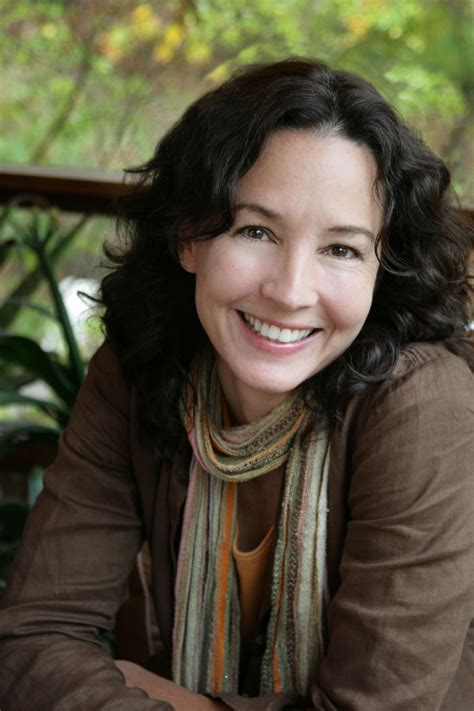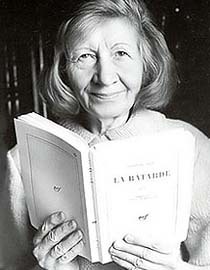A Quote by Nora Raleigh Baskin
All we are, all we can be, are the stories we tell," he says, and he is talking as if he is talking only to me. "Long after we are gone, our words will be all that is left, and who is to say what really happened or even what reality is? Our stories, our fiction, our words will be as close to truth as can be. And no one can take that away from you.
Related Quotes
Our strategy should be not only to confront empire, but to lay siege to it. To deprive it of oxygen. To shame it. To mock it. With our art, our music, our literature, our stubbornness, our joy, our brilliance, our sheer relentlessness — and our ability to tell our own stories. Stories that are different from the ones we’re being brainwashed to believe. The corporate revolution will collapse if we refuse to buy what they are selling — their ideas, their version of history, their wars, their weapons, their notion of inevitability.
When we can't hold back, or set boundaries, on what comes from our lips, our words are in charge-not us. But we are still responsible for those words. Our words do not come from somewhere outside of us, as if we were a ventriloquist's dummy. They are the product of our hearts. Our saying, "I didn't mean that," is probably better translated, "I didn't want you to know I thought that about you." We need to take responsibility for our words. "But I tell you that men will have to give account on the day of judgment for every careless word they have spoken" (Matt. 12:36).
I’m not too keen on talking. I always have the feeling that the words are getting away from me, escaping and scattering. It’s not to do with vocabulary or meanings, because I know quite a lot of words, but when I come out with them they get confused and scattered. That’s why I avoid stories and speeches and just stick to answering the questions I’m asked. All the extra words, the overflow, I keep to myself, the words that I silently multiply to get close to the truth.
The Yogic sages say that all the pain of a human life is caused by words, as is all the joy. We create words to define our experience and those words bring attendant emotions that jerk us around like dogs on a leash. We get seduced by our own mantras (I'm a failure I'm lonely I'm a failure I'm lonely) and we become monuments to them. To stop talking for a while, then, is to attempt to strip away the power of words, to stop choking ourselves with words, to liberate ourselves from our suffocating mantras.
I am a man, and men are animals who tell stories. This is a gift from God, who spoke our species into being, but left the end of our story untold. That mystery is troubling to us. How could it be otherwise? Without the final part, we think, how are we to make sense of all that went before: which is to say, our lives? So we make stories of our own, in fevered and envious imitation of our Maker, hoping that we'll tell, by chance, what God left untold. And finishing our tale, come to understand why we were born.
There's often a distressing disconnect between the good words we speak and the way we live our lives. In personal relations and politics, the mass media, the academy and organized religion, our good words tend to float away even as they leave our lips, ascending to an altitude where they neither reflect nor connect with the human condition. We long for words like love, truth, and justice to become flesh and dwell among us. But in our violent world, it's risky business to wrap our frail flesh around words like those, and we don't like the odds.
These short stories are vast structures existing mostly in the subconscious of our cultural history. They will live with the reader long after the words have been translated into ideas and dreams. That's because a good short story crosses the borders of our nations and our prejudices and our beliefs. A good short story asks a question that can't be answered in simple terms. And even if we come up with some understanding, years later, while glancing out of a window, the story still has the potential to return, to alter right there in our mind and change everything.
When we die, these are the stories still on our lips. The stories we’ll only tell strangers, someplace private in the padded cell of midnight. These important stories, we rehearse them for years in our head but never tell. These stories are ghosts, bringing people back from the dead. Just for a moment. For a visit. Every story is a ghost.
We will continue our journey to our destination of peace and education. No one can stop us. We will speak up for our rights and we will bring change to our voice. We believe in the power and the strength of our words. Our words can change the whole world because we are all together, united for the cause of education. And if we want to achieve our goal, then let us empower ourselves with the weapon of knowledge and let us shield ourselves with unity and togetherness.
A good piece of fiction, in my view, does not offer solutions. Good stories deal with our moral struggles, our uncertainties, our dreams, our blunders, our contradictions, our endless quest for understanding. Good stories do not resolve the mysteries of the human spirit but rather describe and expand up on those mysteries.



































